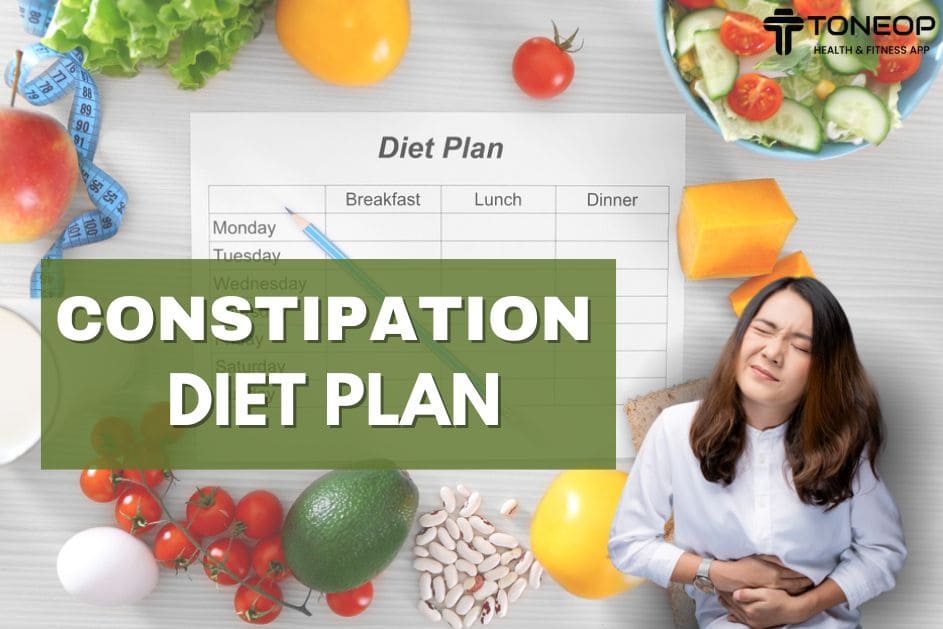Understanding Constipation and Its Causes
Constipation is a common digestive issue that affects people of all ages. It occurs when bowel movements become infrequent or difficult to pass. Common causes include:
- Low fiber intake
- Dehydration
- Lack of physical activity
- Certain medications
- Stress and poor eating habits
A well-balanced constipation diet plan can help regulate bowel movements and improve digestive health.
Best Foods to Relieve Constipation
1. High-Fiber Foods
Fiber adds bulk to stool and helps it pass smoothly. Include:
- Fruits: Apples, pears, bananas, prunes, figs
- Vegetables: Spinach, broccoli, carrots, sweet potatoes
- Whole Grains: Oats, brown rice, quinoa, whole wheat bread
- Legumes: Lentils, chickpeas, black beans
2. Hydrating Foods & Drinks
Dehydration worsens constipation. Consume:
- Water (at least 8-10 glasses daily)
- Herbal teas (peppermint, ginger)
- Soups & broths
- Water-rich fruits (watermelon, cucumber, oranges)
3. Probiotic-Rich Foods
Probiotics improve gut health and digestion:
- Yogurt (with live cultures)
- Kefir
- Kimchi
- Sauerkraut
4. Healthy Fats
Good fats lubricate the intestines:
- Avocados
- Nuts (almonds, walnuts)
- Seeds (chia, flaxseeds)
- Olive oil
Foods to Avoid for Constipation
Some foods can worsen constipation. Limit or avoid:
- Processed foods (chips, frozen meals)
- Dairy products (cheese, milk in excess)
- Fried & fatty foods
- Refined grains (white bread, pasta)
- Caffeine & alcohol (can cause dehydration)
Lifestyle Tips for Preventing Constipation
- Exercise regularly (walking, yoga, swimming)
- Establish a bathroom routine
- Avoid holding in bowel movements
- Manage stress (meditation, deep breathing)
Sample Constipation Diet Plan
Breakfast:
- Oatmeal with chia seeds + 1 banana
- Herbal tea or warm lemon water
Lunch:
- Brown rice + lentil soup + steamed vegetables
- A small bowl of yogurt
Snack:
- Handful of almonds + 1 pear
Dinner:
- Grilled salmon + quinoa + spinach salad
- 1 glass of warm water before bed
Before Bed:
- 2-3 soaked prunes or figs
When to See a Doctor?
If constipation persists despite dietary changes, consult a doctor. Chronic constipation may indicate underlying conditions like IBS, thyroid issues, or intestinal blockages.
Final Thoughts
A constipation diet plan rich in fiber, fluids, and probiotics can significantly improve digestion. Combine it with an active lifestyle for long-term relief.
Need personalized advice? Consult a nutritionist for a tailored diet plan!
Share this content:



